#vol-au-vending-machine
Note
There should be a PSH boxset. I need to have all his content in one place.
Real!! Some of his stuff should be much more accessible than it is too 😩 This is currently my PSH film collection (with a few of his plays and fave books)—Happiness and Triple Bogey were a little harder to find and I’m gonna have to burn my own DVD of Joey Breaker 😵💫😵💫 Where is the PSH Criterion boxset!

#it would be a thousand dollars and I would buy it#vol-au-vending-machine#ask#my fave lil shelf <3 only abt 60% done though#a few weeks ago I took a photo of my WHOLE collection (magazines posters etc) and it was so overwhelming to ME I didn’t post it kshdjsks
12 notes
·
View notes
Note
Elizabethan Memes here: as a big fan of Margaret Irwin's Elizabeth and the Prince of Spain, do you know of any novels with good Philips? Or novels with good Philip/Elizabeth chemistry?
Beyond that one, naur, not really...G Lawrence's depiction of their dynamic is not 'bad', per say, it's just rather more cynical of the relationship (arguably, deservedly, imo). Their exchanges were interesting tho, I would say. PGreg verse novel version (this is the Queen's Fool, iirc) is a complete dumpster-trash CSA apologist fire (re: the Thomas Seymour stuff) so I can't really in good conscience 'rec' that one, from what I remember the Felipe/Elizabeth stuff is rather peripheral anyways. It's all very Elizabeth is TOBG AB-coded (this is never said, but, really...the original incarnation of this character is actually the anti-heroine of Wideacre, a deluxely trashy novel I had less issues with, given the Evil Incest Anti-Heroine is entirely fictional and thus the narrative is not slandering a woman who died under false accusations of incest by entertaining those accusations as extremely likely...things that make you go hmmm) and she's bewitching him away from his wife with a giggle in her throat and a strong spite motivating all, although what's, I suppose, compelling about it is the suggestion that she was ingratiating herself towards him in a bid for protection.
#vol-au-vending-machine#i do not know if this is helpful. at all lol#honestly your fic is probably one of the better ones
1 note
·
View note
Note
What's the tea on Ian mortimer? What are his crazy takes?
Where do I begin?? @qqueenofhades has discussed his issues as a historian a few times (see here, here and here) as has @oldshrewsburyian (here). I definitely recommend looking at the comments and replies in both of them for more tea too. And apologies for taking so long to reply and for the sheer length. There’s so much tea to spill and I think there’s a full pot left over.
The most infamous thing he's done is reassess the evidence of Edward II's death and argue that Edward did not in fact die but his death was "faked" and he was living on the European continent for some time afterwards. The evidence is intriguing but far from definitive, despite what Mortimer and his followers (e.g. Kathryn Warner) think, and with such an incredible claim, scepticism is natural. Mortimer's attitude is that he, the Great Historian, has discovered The Definitive Truth and that there is a conspiracy amongst academic historians against him to prevent the Truth from becoming accept and he being hailed as the genius as he really is. He has an "essay" on his website in which he compares himself to Galileo (!) and those who were mocked for doubting the existence of Weapons of Mass Destruction in the lead-up to the Iraq invasion (!!) and compares W. Mark Ormrod's position on the theory to - and I shit you not - people who refuse to accept allegations of child sex abuse because the abuser isn't like that (BIG YIKES!!!). This, by the way, is in competition with another essay on his website for the most rancid hot takes.
I've only looked at his Edward III biography in passing but he does accuse Philippa of Hainault of adultery. Because Edmund of Langley was born two weeks too early to be carried to term. One might say that the most logical explanation was a premature baby but I suppose that isn't dramatic enough. I'm more familiar with his work on Henry IV and Henry V, unfortunately.
His biography of Henry IV works along the premise that this is a (supposedly) innovative not conventional biography, it's an attempt to view Henry's times and peers through Henry's eyes. This is a problematic concept. Firstly, it involves prioritising the judgement of one man and excluding everyone else's perspective. Secondly, the evidence just isn't there to give us Henry's perspective without relying on masses of supposition and speculation and in the end, the Henry found in Mortimer's work is a fiction. Thirdly, Mortimer's version of Henry is idealised to the extreme.
Everything Henry does is right. He is Heroic, Manly and Good. The dubiously legal and disastrously unpopular execution of Archbishop Scrope proves Henry was "decisive" (that Scrope became an immensely popular martyr-saint and Henry believed to have contracted leprosy in punishment, that Henry fell out with one of his closest allies and was excommunicated by the Pope over his actions means nothing). Mortimer also basically brushes off Henry's involvement and compliance in the introduction of de heretico comburendo law, allowing heretics to be burnt at the stake.
Richard II is reimagined as a rather pathetic pantomime villain, one who is pathologically but deservedly jealous of Henry (after all, who wouldn't be?). We are constantly informed of how Richard wasn't manly (unlike Henry who was the manliest man to ever man), wasn't heroic (unlike Henry), who wasn't sporty or a statesman (unlike Henry who Mortimer elsewhere compares to a combination of David Beckham and Winston Churchill but better). Richard's mother was an embarrassing slut (unlike Henry's perfect mother who was the dead epitome of courtly romance and therefore not an embarrassment), Richard had no children (unlike the virile and manly Henry who had a cartload) and how Richard was the grandson of an executed traitor (unlike Henry who was the grandson of a military hero)* and so on. In other words, Mortimer's attempt to flesh Richard and Henry as individuals is actually an endless dick-measuring competition in which Richard inevitably loses and Henry inevitably scores off the charts. This, of course, is the sole reason why Richard didn't like Henry. Not that Henry had committed treason against him in the Appellant Crisis, nope. He was just jealous that Henry had the bigger penis.
There are some truly bizarre leaps of logic. According to Mortimer, Richard attempted to murder Henry by... leaving him in the Tower of London during the so-called Peasants Revolt in 1381. This presupposes that Richard had both knowledge that it would be invaded and sacked during his absence (he was meeting the rebels in person at the time) and was a psychopath who was happy putting everyone in the Tower at risk of murder, rape and violence, including his own mother (though I must suppose that Mortimer believes Joan of Kent was "embarrassing" enough to be acceptable collateral damage). Nor is there any evidence Richard evilly masterminded the invasion of the Tower. The story that Richard attempted to strike William Courtenay, Archbishop of Canterbury becomes a murder attempt in Mortimer's hand - an attempt that Mortimer's Henry frets over in fear of Richard murdering him. William Courtenay's perspective is naturally excluded from Mortimer's retelling (the only time he's mentioned by name is in the index) but it's worth noting that he went on to have a good relationship with Richard.
Everyone is considered mere fodder for the story of Henry's greatness. They are given no subjectivity, their own lives and actions revolve around Henry. Mortimer tells us how brave Henry was in returning to England in 1399 to confront Richard because Richard had his son hostage and could kill. Not one thought is given to the perspective to Henry's 12 year old son whose life was endangered by Henry's actions.** Mortimer composes a melodramatic recreation of how Henry must have found out about the death of his eldest daughter, Blanche, with the lens steadfastly focused on Henry's pain. It's not Blanche that's important here, or the grief of her husband and father-in-law whose letters Mortimer quotes from to set the scene. It's Henry.
Blanche's life matters so little to Mortimer that he didn't even get the details of her death right.The letters that he quotes from explicitly tell us how she died and it was from a fever, not childbirth. They make mention of taking comfort in her son (Ruprecht, born three years earlier) but no mention of her going into premature labour or suffering a stillbirth or miscarriage. Did he even read them or was he just cherry picking quotes to frame his discussion of Henry's manly suffering? I suspect the latter.
Moving on to his Henry V biography. And it is painful. Mortimer is playing the innovative historian again and this time, rather than give Henry V's life in full, he gives us a day-by-day accounting of one year in Henry V's reign, 1415, before concluding with a chapter full of pseudo-psychological reasoning to go "and that's why Henry V sucks!"
In limiting himself to one year, he gives little attention to Henry V's upbringing and adolescence and can neither properly assess the successes and failures of Henry's reign in full. He even talks about how his approach means that "negative evidence counts as evidence!" yet little consideration is given to the prospect that the years before or after 1415 might provide a wealth of information that contradicts his conclusion. Here's Nigel Saul on Mortimer's approach:
...to form an overall view of Henry's achievement, we need to look at the King's actions during the whole of his reign, and we should not, as Mortimer does here, brush aside Henry's concern for justice on the basis of failings in 1415 without taking into account the stern justice he administered in the Midlands in the previous year. Mortimer himself, in the concluding chapter of his book, admits the limitations of his method. He says we "need to get away from the day-to-day details of the year, stop criticizing him for every niggling failure, and picture the man's vision and achievements in relation to his time." This is a surprising, belated, admission, and one wonders why he places such faith in his method in the first place.
Mortimer also takes a similar approach to Henry V as he did in his Henry IV biography. Not in the sense that he's trying to see the world through Henry V's eyes and thus everything is sympathetic. But in the sense that his version of Henry V is a fictional creation made up of Mortimer's suppositions, gut-feelings and speculation but this time, it's more of a case of "make up a guy to get mad at" than "here's my Marty-Stu". And really, the "make up a guy" part is startlingly obvious when you get into his claims.
So the most balls-to-the-wall, insane thing Mortimer does is declare that Henry V's motto une sanz pluis ("once and no more") "almost certainly comes from a medieval French version of Homer's Iliad" and "the arrogance of the message is quite breathtaking". The precise bit of the Iliad is from the second book, lines 204-5 (Mortimer's own translation: "as for having several lords, I see no good therein / let one and no more be the master, and that alone be the king") and for Mortimer it confirms that Henry was an authoritative, if not absolute, if not tyrannical ruler. All very ingenious detective work, right?
Nope.
There is no evidence that Henry V had any access to any version of the Iliad, much less sourced his motto from it. Homer wasn't widely read in the Middle Ages. At all. Like, authors like Dante Alighieri, Chaucer? Did not read Homer. Mortimer doesn't provide any evidence to back up his claim. He doesn't refer to a manuscript that existed in the Middle Ages, let alone one Henry V might have owned or accounts showing Henry V connected with a "medieval French version" of the Iliad. His sole footnote for this argument contains the reference to the lines, not to any edition of the Iliad, and a single note about how non-standardised spelling. In other words, Mortimer provides no evidence or explanation for his claim, just baldly states this is so. But it's even worse than it first appears.
"Unfortunately for this argument," Malcolm Vale writes, "there was no 'medieval French version of Homer's Iliad' and Henry could have never 'heard it in French'." The first known French translation of The Iliad appeared in 1545. Henry V came to the throne in 1413. He died in 1422. And that French Iliad doesn't render those lines like Henry's motto. Henry would have had to wait until 1574 for that. (Vale also notes that the 1574 Iliad takes a very different approach to ruling that Mortimer supposes Henry V took). In short: Ian Mortimer made up? misrepresented? relied on dodgy information? something to show how "arrogant" and tyrannical Henry V was.
But that's just the tip of the iceberg. Mortimer tends to arbitrarily decide what his subjects were like and interpret (or make up, as the Iliad example proves) everything through that lens. Henry V was excessively proud, Mortimer claims, so everything he did was motivated by his pride. For Mortimer, Henry V is has no redeeming qualities - Richard II, he says, at least had culture but Henry V did not. This is patently untrue. Henry had been a patron of the writers John Lydgate and Thomas Hoccleve. True, neither Lydgate or Hoccleve have been served well by literary commentary and criticism over the centuries and have suffered by comparison to Chaucer but there has been a lot of work re-evaluating their work. Henry was also quite interested in books. Mortimer sardonically informs us that Henry had no interest in music but the sound of war drums but, to put it bluntly, he's talking bullshit.
We have clear, documented evidence of Henry's interest in music. He played music himself, the beauty of his chapel's music was publicly remarked upon, he may have been the "Roy Henry" who composed two mass movements (Roy Henry - King Henry - was probably either Henry IV or Henry V) and indeed, musicological opinion favours him. Mortimer does not even mention the Roy Henry songs in his Henry V bio, not even to claim that Henry IV was the composer (as he does in his Henry IV bio).
He spends a long time talking about how Henry V was awful because he had been raised to be king and, when Richard II refused to accept John of Gaunt as his heir, Henry V's ego took a blow that never recovered. There is no evidence for this. None. Zilch. Zero. There is no reason to believe that Henry V was raised to be king from birth (indeed, it must have seemed fairly unlikely at his birth, given Richard II was demonstrably in love with Anne of Bohemia and there was no reason to suppose that the marriage would be childless. Richard's reluctance to name an heir throughout his life and reign would be sign enough that Henry V's father and grandfather shouldn't have raised him with that expectation). Mortimer centres this invented version of history and spends exactly 0 words considering the impact of an adolescence spent dealing with his father's usurpation, rebellion, civil conflict and more (Henry was twelve years old when his father returned from exile and according to Mortimer in his Henry IV bio, endangered Henry V's life)
Mortimer does not even discuss the impact that Henry's near-fatal wound at age 16 and permanent disfigurement could have had on Henry's character beyond listing "facially disfigured" as one of the horrors awaiting Catherine de Valois upon her marriage. Mortimer seems to flirt a few times with calling Henry V a paedophile for pursuing marriage with a "pubescent" Catherine de Valois and apparently considers arranged marriages to be an oddity ("most of his predecessors had married for love – including his father, grandfather (John of Gaunt) and great-grandfather (Edward III)" - I'm not sure you can count Edward III's since his marriage to Philippa of Hainault was ostensibly to provide his mother with an army to depose his father; or Henry IV's to Mary de Bohun since she was 10 years old at the time.). By focusing only on 1415, Mortimer scaremongers about Catherine de Valois's future but doesn't have to deal with her actual evidence of their relationship.
His other complaint about Henry V is that he was a religious bigot and... look, the evidence doesn't really support this, and he has no problem cheering Henry IV on for going on religious crusade to Lithuania to murder some just-converted Christians in the name of Christ. Mortimer decries the burning of heretics in Henry V's reign but says nothing uncomplimentary about Henry IV who introduced and approved the law that let it happen. And yes, burning people alive is extremely awful but if you call Henry V a zealot and bigot for that, you also have to call the man who made it possible a zealot and a bigot. And you certainly can't pearl-clutch about Henry V invoking God's will in relation to his military campaigns in France just after you've told us how going on a crusade (in a country that was Christian!) made Henry IV into a Great Man of History.
But by far the worst thing is Mortimer's declaration that Henry V was a extreme misogynist with a pathological fear of woman - possibly, he says, as the result of an "unfortunate experience" in his wild, allegedly promiscuous youth. A lot of the support for this theory comes from flimsy evidence or over-interpreted evidence, some just flat-out bizarre: Joan of Navarre didn't reside in Henry V's household (why would she? She was his stepmother, she had her own household, she hadn't even resided within her husband's household). there were women wearing virginal white at the Agincourt pageants (yes, this was typical for pageants regardless of the occasion or who they were held for). But the evidence Mortimer seems to put the most weight on and is the most outraged by is... Henry V was reportedly celibate between becoming king and his marriage.
So the evidence for this comes from two fairly reliable sources which means it may well be true (though everything else one of the sources says is labelled by Mortimer as disinformation) but it doesn't tell us how Henry saw women. Chastity was an ideal for a medieval king, it made them more like Christ and showed them strong enough to rule over their bodies (and thus were fit to rule over a kingdom). While a sexed-up, fun-seeking king might be more appealing to a modern eye, it absolutely wasn't from a medieval perspective and we should be slow to judge someone on such anachronistic criteria. It may also be that Henry V didn't have sex with women (I specify "with women" because both sources do this; Mortimer does not) because he wasn't sexually attracted to women or experienced little to no sexual attraction or desire (in other words: he may have been what we would today call gay or asexual). There is no proof this was the case but it's the sort of thing that wouldn't necessarily leave proof and if we are speculating of "unfortunate [sexual] experience" as reasoning, then yes, we need to consider the possibility that Henry V may not have felt sexual attraction and desire in the heteronormative sense that Mortimer assumes he does. Of course, Mortimer himself takes a very "no homo" approach to history (he seems to dance close to no-homoing Edward II a few times) and I doubt he knows asexuality exists, but the implications are there and they are not good.
This view of Henry V is also... fairly misogynist as it ultimately claims that not wanting to have sex with women is proof of a moral failing. It reduces women down to objects that men must have sex with to prove they're not misogynist (seriously?!) and presents m/f relations as the most moral choice. In doing so, Mortimer implies that to be gay or asexual is to be misogynist and immortal. I must say, though, if Mortimer wants his opinions on misogyny to be taken seriously, he probably shouldn't refer to women as "females" in the middle of this. The whole passage reeks.
(I don't believe I'm being too harsh here; he has an "essay" on his website in which he rants about how The Favourite is horrible history (...it's a film?) because it erases men from Queen Anne's story (...wow) and makes the audience think of her as a lesbian when she wasn't (uh, I'm not well-read on Queen Anne but I'm pretty sure this isn't as certain as he makes out?) and no one will remember how she was a hard-working stateswoman because they think she was a lesbian (and he thinks these are exclusive categories... why? Is it the homophobia?)
To be fair, he sometimes does good research. His work on the survival theory is impressive until he went off the deep end with it. He has found things that do correct our thinking about Henry IV's life. But he assumes his conclusions and opinions are evidence of the Definitive Proof that only he has access to so you have to take everything he says with as much salt as the Dead Sea contains. You have to check his research.
And then you find he has omitted evidence or clearly hasn't read into it or even (seemingly) flat out invented evidence. That he treats his opinions as facts. That his logic is bizarre and instead feeds only his firmly held conviction that he is right and the evidence must fit his foregone conclusions.
He presents himself as an innovative, genius historian coming down from on high to present us with The Definitive Truth and New Genius Ways to look at history, yet rarely seems to understand the truly innovative and thought-provoking work historians are doing. What he presents as innovations generally aren't. Queenship studies and adjacent work on the soft power of noblewomen clearly is a thing that passed him by. He dismissively refers to Joan Fitzalan, Countess of Hereford as an "old, pious widow" regardless of the studies that show the rather extraordinary way she wielded power in both the reigns of Henry IV and Henry V. He remains wedded to the idea that apart from the very few exceptional women like Isabella of France, men make history and it's Bad, Irresponsible History to cast them in minor roles. He is not interested in more literary approaches to history - he accuses Michael Evans of approaching in history in a “dangerous way” to explore the themes and patterns in the narratives of death (his main example is that Evans parallels the red-hot poker deaths of both Edward II and Humphrey, Duke of Gloucester and it’s worthless because Edward II didn’t die then. Gloucester did not die of red hot poker either. That’s not the point of Evans’s analysis.) Mortimer is uncomfortable with history studied through a gender lens, as evidenced by his review of Christopher Fletcher’s Richard II: Manhood, Youth, and Politics, 1377–99 in which he concludes by bemoaning that Fletcher does not pay nearly enough attention to "full-bearded jousting champion, crusader and father-of-six Henry" IV (opposed to "the childless, beardless, unmartial, mercurial Richard" who was bearded as Fletcher makes a point of stating) and that gender studies is too esoteric, not interested in taking things at face-value, like Henry IV’s beardy manliness.
Let’s talk about his own innovations. His ingenious centring of Henry IV's perspective? It's the same thing bad pop historians like Alison Weir have been doing for years. He writes Great Men of History biographies and then acts like he’s above the whole concept because Henry V has had too many Great Men of History biographies. Mortimer is not the first historian to write a day-by-day chronicle of history (Marilynne K. Roach published her day-by-day chronicle of the Salem Witch Trials in 1997, 12 years before Mortimer's was published, and I wouldn’t be surprised if there were earlier ones) and his approach is flawed as noted above. He has advocated for the mixing of fiction and history but complains that if he wrote a "pseudo-autobiography" he would be criticised for "blurring the distinction between fact and fiction" and yet this is a type of history that should be criticised. It is a dangerous approach to history. We do not want the historians of the future to waste time separating the fictions of current historians from the facts of the past. Is it good history or bad history to admit that we don’t know something is true than to make up something to explain it? I would think it’s good history.
In addition to that "essay" where he's absolutely foul about W. Mark Ormrod (who, by all accounts, was a lovely man), Mortimer spends some time sniping at “historians” in his books:
They're "confused" by conspiracy plots like the Southampton Plot because they don't understand (like he does) that such plots are vague by nature and they "prefer to see neat plans and processes laid out in evidence of a coherent and achievable strategy". They don't talk about literary form, most "do not realise that history has a literary form" (do they? do they really?). They're wedded to long-accepted facts and blinded by great men of history and hero-worshipping (unlike him). Or they're stuck in a "group-think" and cannot recognise the genius of Mortimer's methods or his Definitive Truth.
Yet, for a historian who complains about "group think" and conspiracies against him, he seems to believe that if only historians accepted and copied his methods, they would come to the exact same conclusions as he has and accept his genius.
He positions himself as an outsider and yet he is not. He is a white, cishet man whose work has been published in prestigious publications like The English Historical Review and by respected academic presses, his books have been published by Vintage, a major publisher. He is no more of an outsider than Dan Jones is.
Oh, and in case you think I'm part of the Big 14th Century England Academia Conspiracy against him, I'm not. I'm not a historian by neither training nor profession. I've never studied history outside of high school but I am interested and well-read enough to respect the discipline.
*Joan of Kent vs Blanche of Lancaster; Edmund, Earl of Kent vs Henry of Grosmont, Duke of Lancaster. Ironically, Mortimer makes much of Kent's "treason" in his Edward II and Edward III work since Kent was executed for trying to rescue Edward II at a date after Edward II's official death - i.e. his treason is proof that Mortimer is correct about Edward II's survival.
** it's doubtful Richard would have actually killed the future Henry V but Henry IV would not necessarily know that for certain and more to the point, that's not the version of history that Mortimer presents.
66 notes
·
View notes
Text
reading list game!
tagged by @districtunrest to share my recent, current, and future reads! thanks!! :)
recent:
The Little Prince by Antoine de Saint-Exupéry
Try to Make Your Life by Margot Friedländer [read in German]
Educated by Tara Westover
Blood, Sweat, and Pixels by Jason Schreier
Girls with Sharp Sticks by Suzanne Young
current:
A Game of Thrones by George R. R. Martin
Battling the Big Lie by Dan Pfeiffer
future:
Know my Name by Chanel Miller
This is How You Lose the Time War by Amal El-Mohtar and Max Gladstone
On Earth We're Briefly Gorgeous by Ocean Vuong
(I have a whole TBR list with almost 100 books, listed by whether I can audiobook them--and where--and the majority of it is on my kindle. I mostly just go and pick something from there, the preference never set in stone tbh. I've got a whole system about where to find audiobooks and which ones I want to audiobook and all. I love organisation lol).
tagging: @gleamingsilence @footnoteinhistory @beedelia @thegoddessprose @thegreatmelodrama @thesmileykate @mollywog @sparrowandbee @vol-au-vending-machine @thefallenangelsgang @pollinarys @lilydoeswrite @bodyelectric77 @everdares @petruchio
16 notes
·
View notes
Text
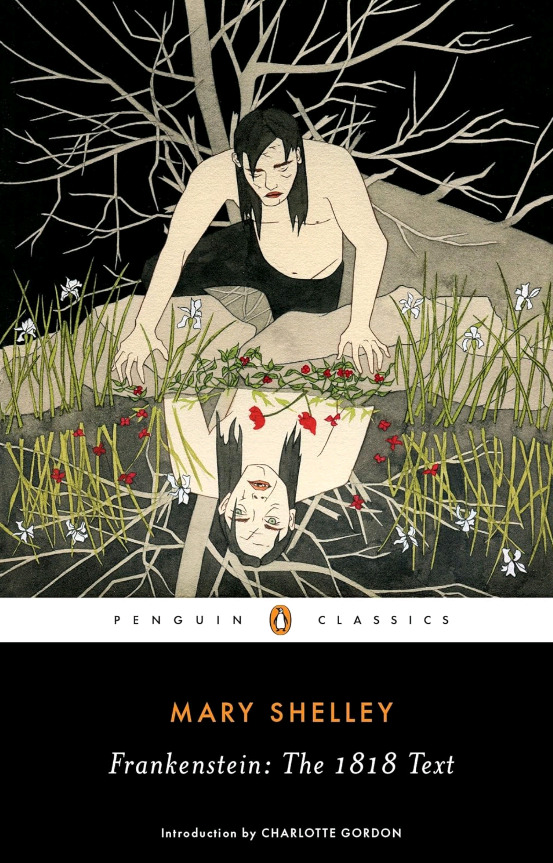
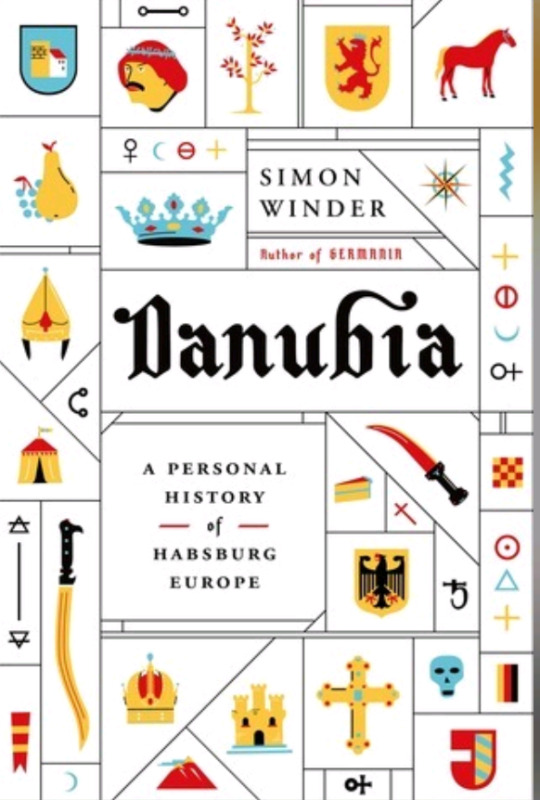
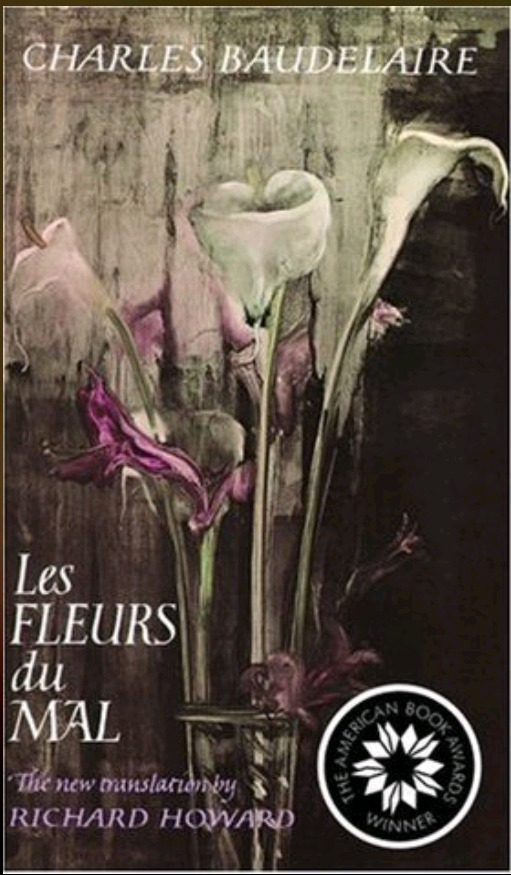
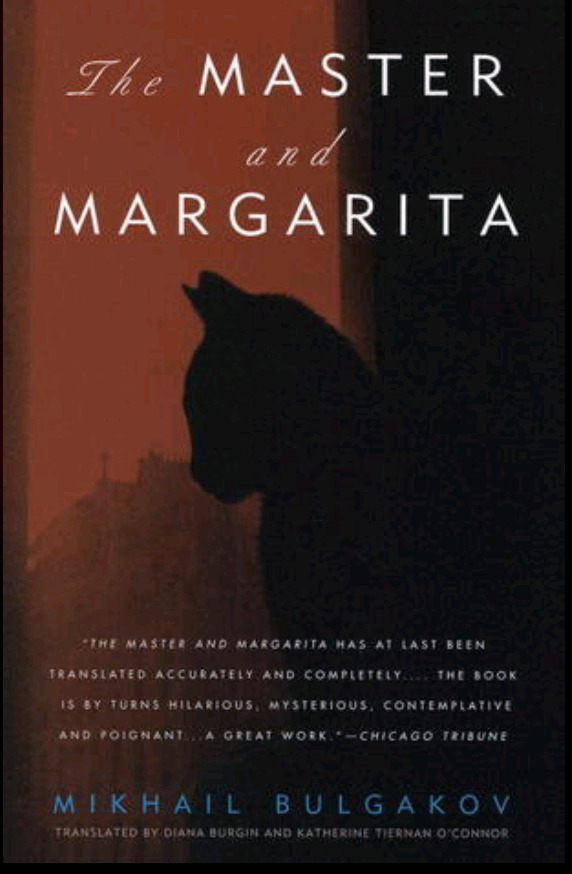
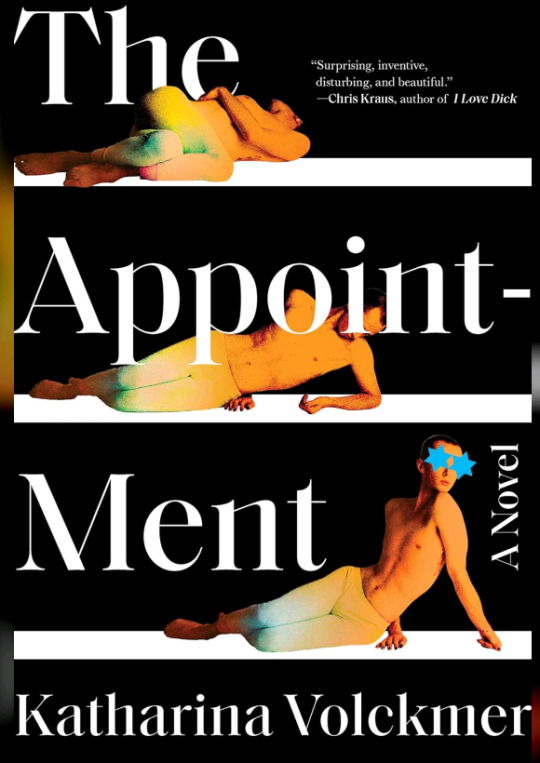
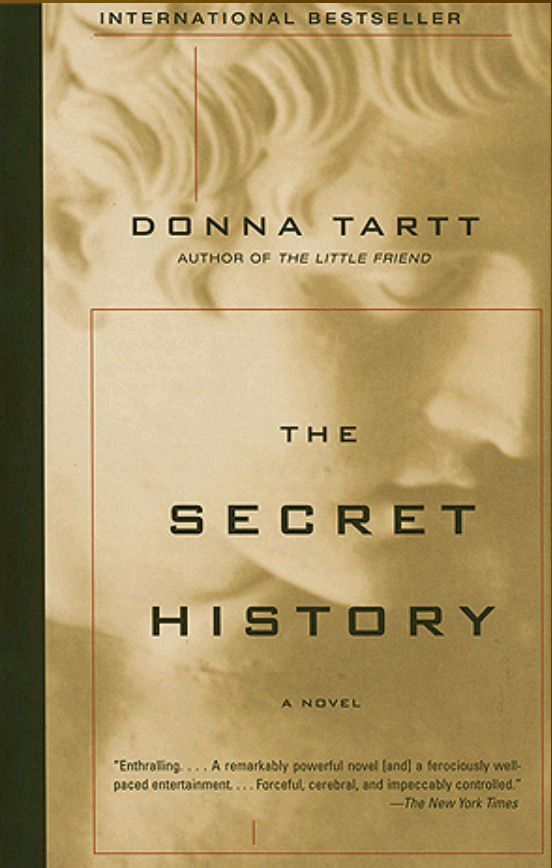

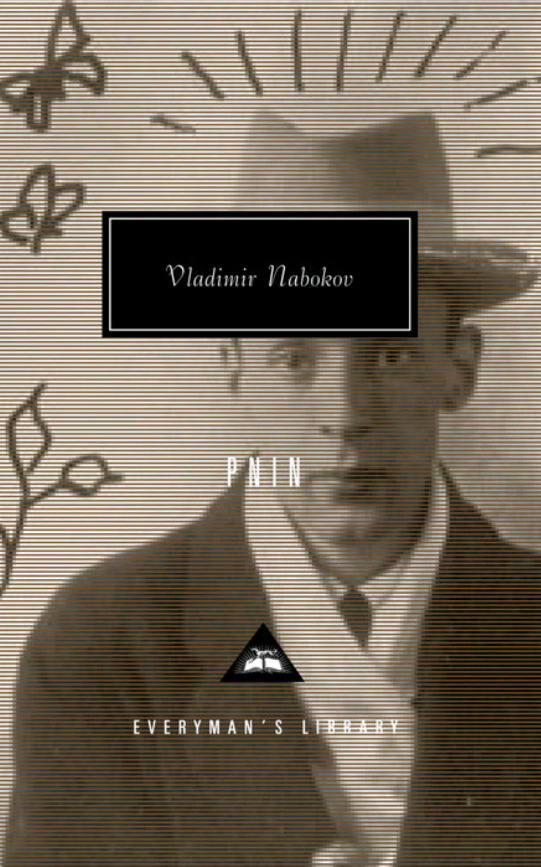
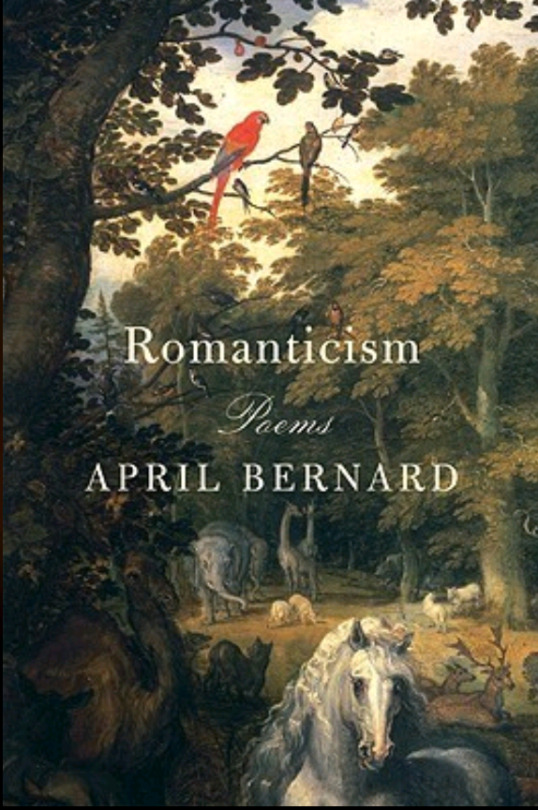
tagged by @zaegreus - here are nine of my favorite books! (in no particular order)
tagging:
@heartofstanding @herbertspencerhoroscope @119th-st
@theboarsbride @sexonadeathbed @vol-au-vending-machine
@britneyshakespeare @quixotix @mashkaroom
10 notes
·
View notes
Text

mais tout à fait @smolnerdz
ils sont tous plus ou moins sous anti-dépresseurs mais c’est blaise qui a la plus grosse (armoire à pharmacie), il est constamment à un cheveu du burnout et il a tendance à faire des malaises vagals au moment des bilans de fin d’année. il existe dans les archives de la compta un dossier entier consacré au budget de la machine à café. un jour perceval et karadoc ont voulu faire une corbeille à fruits ludique pour inciter les enfants à manger des fruits sauf que ça a fini avec des petites voitures coincées dans des oranges. bohort pense quotidiennement à se jeter par la fenêtre, souvent à cause d’arthur et leodagan qui se bouffent le nez mais chaque jour à cause d’élias et merlin for obvious reasons. guenièvre et dagonet sont les seules personnes encore saines d’esprit dans la boîte. galessin ne boit des coups qu’avec dagonet puisque apparemment c’est son seul pote ever (et dagonet il dit pas non car c’est un être gentil et galessin c’est son bestie). bizarrement l’équipe yvain gauvain kadoc fonctionne pas si mal que ça. venec est totalement un dealer de matériaux rares mais arthur chooses to not see it (parce qu’il est furieusement bisexuel pour cet homme). grüdü a été engagé comme vigile après une tentative de vol (où galessin a été blessé je précise). beaucoup de monde ont été surpris en pleine baise dans le placard de service. l’équipe d’italie vient visiter au moins une fois par an. hervé a des mains d’or mais sans déconner on comprends rien à ce qu’il dit. je ferais un post sur qui a quelle voiture parce que vraiment jamais parking d’entreprise n’a pu être aussi reconnaissable à cause des bagnoles garées dedans.
quelques douces pensées :
élias : à défaut de pouvoir le retenir je peux vous enfoncer le code civil dans le cul si ça vous chante
merlin : j’vais aller à l’encontre de l’arrêt de morsang-sur-orge ça va être vite vu vous allez voir (les vrais ont compris cette vanne if not allez googler)
hervé : nan mais vous voyez faut crisser le verre comme une margoulette et après ça se bonifie avec la passion
everyone else :

calo à un fournisseur : non mais vous voyez, on aimerait bien que de votre côté vous accentuiez le côté production bio, locale. vous savez que l’écologie, la préservation de l’environnement est quelque chose que nous prenons très au sérieux dans notre entreprise.
leo, standing behind him menacingly : mais parfois on revient à la bonne vieille essence. pour faire cramer des fermes par exemple.
les boys d’italie : alors ça roule ton affaire ?
arthur :
something : *explodes in the background*
arthur : comme sur des roulettes
michel, aux travailleurs de l’usine attenante à la boîte : allez on se magne plus vite que ça, sinon je prends le pistolet à scotch et je vous emballe le service trois-pièces façon paquet cadeau !
caius, talking about his acting job : non mais mon public se divise en trois catégories : les petites vieilles, les parisiennes et les lgbt.
lancelot : pourquoi les lgbt ?
caius : trouve-moi un lgbt en france qui n’aime pas les p’tites planplantes. et pour les p’tites planplantes, faut des jolis vases. que je leur vends. et que vous vendez de façon réelle.
lancelot, se penchant vers galessin : faudrait p’têtre essayer de le recruter pour la comm, en fait…
galessin :
galessin : tchoi- *gifle lancelotienne*
and i have many more ideas
#modern au#kaamelott#elias#caius#arthur pendragon#galessin#mani#blaise#falerius#bohort#merlin#calogrenant#lancelot du lac#papinius#gauvain#yvain#leodagan#hervé de rinel#dagonet#guenievre#venec#grüdü
11 notes
·
View notes
Text
wip ask game
Rules: post the names of all the files in your WIP folder regardless of how non-descriptive or ridiculous. Let people send you an ask with the title that most intrigues them and then post a little snippet of it or tell them something about it! And then tag as many people as you have wips. I have deemed that this isn’t just for writing either. Sketch titles? Comics? DnD campaigns? If you have an unfinished project, it counts!!
tagged by @dawl-and-dapple and uhhhhh hey y'all i think i have one or two wips, not that many really, it's cool and fine!


and a bonus VERY lonely silmarillion fic hanging out in my other wip folder

tagging @minutia-r @worldsentwined @vol-au-vending-machine and anyone else who sees this and would like to consider themselves tagged!
#my fic#yes i really do title my documents like that#four of these are documents with multiple fics in them btw
7 notes
·
View notes
Text

I posted 1,065 times in 2022
210 posts created (20%)
855 posts reblogged (80%)
Blogs I reblogged the most:
@jurijurijurious
@vol-au-vending-machine
@macpye
@cparti-mkiki
@robins-treasure
I tagged 889 of my posts in 2022
Only 17% of my posts had no tags
#reboot - 311 posts
#megabyte - 247 posts
#reboot fanart - 234 posts
#dot matrix - 145 posts
#megadot - 131 posts
#megabyte x dot - 130 posts
#reboot tv show - 128 posts
#reboot fanfic - 124 posts
#reboot cartoon - 102 posts
#trojan megabyte - 101 posts
Longest Tag: 114 characters
#we need more of this in hist fic not all the roses or the photos of ladies in dresses with their heads out of shot
My Top Posts in 2022:
#5
Sometimes I feel like I see Palpatine on a different level to other people.
Like you can laugh that, after Vader vents his spleen in the last episode of Obi Wan, that all he says is "you seem agitated". No shit, you think.
And yet, maybe it's because I'm British, or maybe I just overthink this bad boi, or maybe I'm not getting people's humour, but this is exactly how master teachers, how powerful bosses, the ones who rule with barely a raised voice and brow, manage dissent, manage tantrums, be it a classroom or a staff or a single Chosen One. They drop hints, little warnings, and suddenly you go "oh shit, we pissed off the powerful one" and stfu. I've always felt Palps is like this with Vader. Every now and then he drops a little reminder, a piece of innocuous, maybe almost pointless code, just to remind Vader to wind his fucking neck in, and make him remember who it was who truly made him. Because Palps is a powerhouse. And we don't need to see force lightning every time to be reminded of this.

Also Ian McDiarmid, you look so frail, bless you, I hope you're okay.
39 notes - Posted June 23, 2022
#4
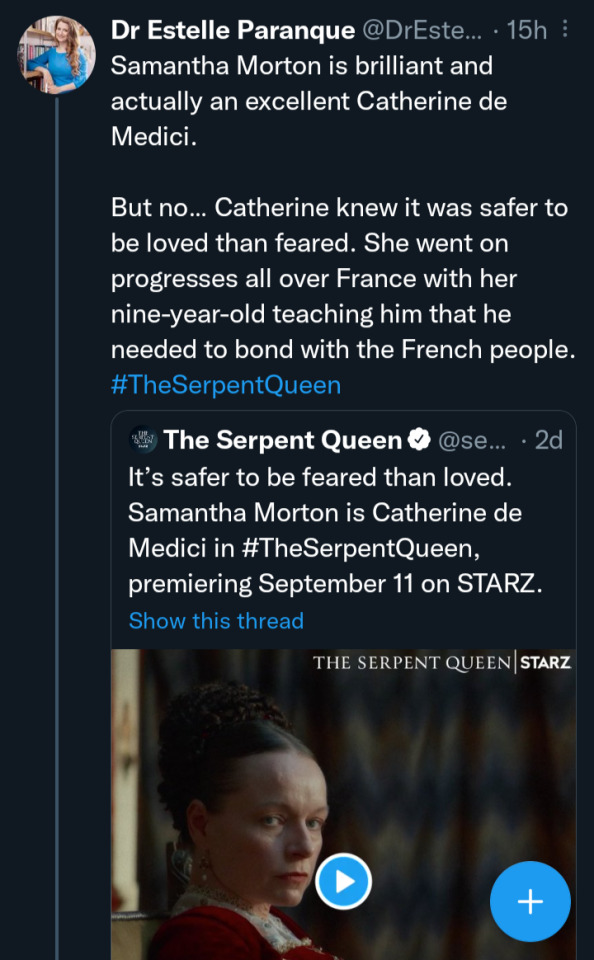
43 notes - Posted July 31, 2022
#3
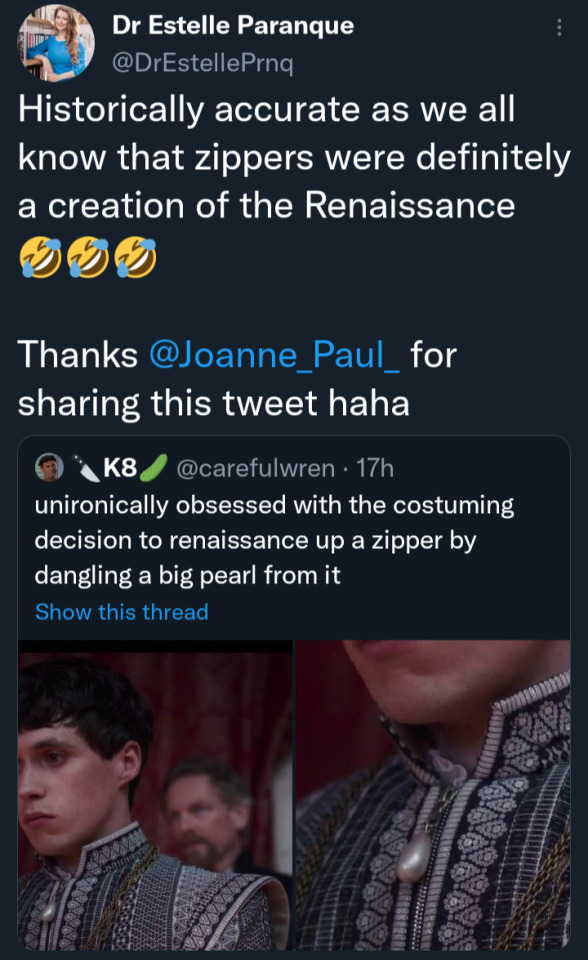
50 notes - Posted September 29, 2022
#2
Check out my new ink guys!! I swear some tat artists are like magicians, you give them a brief and they nail a kickass design. Isn't this the most amazing Megabyte?? I'm so in love with him. Captures the character and everything he's about in a single image. 💚💙💚💙

Please give my artist Seapazz some love if you're on IG or Twitter. He's super talented and I think he'll be a heavy hitter in the industry soon enough. Plus he's a real nice guy!
63 notes - Posted January 7, 2022
My #1 post of 2022
I wish for Tumblr's Year in Review they highlighted the most obscure ships on this site as well as the most popular. Just so people can stare at users like me like I'm some sort of strange museum exhibit and go "omg I forgot about that show/film/book" and "srsly people ship that?"
567 notes - Posted December 4, 2022
Get your Tumblr 2022 Year in Review →
2 notes
·
View notes
Note
I've thought PSH was gorgeous for years but always felt embarrassed about it so thank youuuuu for your blog and your appreciation of his looks as well as his obvious talent (his hands! his jaw! his hair! his nose! his figure! his hands!!!!!!)
Oh thank you!!! You are definitely not alone in recognizing what a gorgeous guy Phil is 😌 We’ve all probably read too many rude reviews or comments about his looks but they must be lying to themselves because I meannnnn

6 notes
·
View notes
Note
I was browsing a pop history book and it claimed that Humphrey was in love with Jacqueline of Hainault. Is there any evidence at all for that? Was Humphrey's marriage to her just about politics?
So... this got long. And it took a long time to write because everytime I tried to read through it, I ended up adding more. But I'm leaving it alone now. I'm sorry, I just have a lot of feelings about Jacqueline.
The summary version is: I don't think we should see their marriage as primarily a love match. I don't think we should see it is being primarily motivated by Humphrey's greed and ambition either. There isn't any really surviving evidence for how they saw each other - the marriage might have been just politics, it might have been companionable, it might have been loving (though I'd push for a wider definition of "loving" than just "romantic love").
It really annoys me the way that historians all tend to view Jacqueline as, first and foremost, a tragic romantic heroine who is let down by her useless and philandering husbands (John, Duke of Brabant and Humphrey), rather than, you know, a medieval noblewoman whose inheritance rights were attacked and undermined by her male relatives and who was, ultimately, a victim of the patriarchal power structure that meant her right to inherit her father's lands and titles was constantly under threat.
A brief history of Jacqueline before Humphrey: she was the only child of William of Bavaria and Margaret of Burgundy, Duke and Duchess of Bavaria, Count and Countess of Holland, Zeeland and Hainault. Her father made efforts to have Jacqueline's status as his heir safeguarded during his lifetime, including marrying her to Jean, Duke of Touraine, Charles VI of France's son, which would mean French support for her succession. Unluckily, Touraine died in April 1417, possibly by poison, and William died the month later. William's younger brother, John the Pitiless, left his ecclesiastical career to claim he, not Jacqueline, was the rightful heir of Holland, Zeeland and Hainault. In effort to forestall her uncle's effort and possibly to garner Burgundian support (the marriage is generally accepted to have been made on the advice of her mother and her brother, John the Fearless, Duke of Burgundy), Jacqueline married John, Duke of Brabant. Unfortunately, Brabant turned out to be worse than useless.
Brabant was unpopular within his own lands, was seen as weak and as ruled by his favourites. The marriage required papal dispensation, which was granted and then revoked and then granted again. Brabant pawned Jacqueline's lands to John the Pitiless without Jacqueline's consent. Brabant also inferred with her household, dismissing her attendants despite her protests. Yet historians, even reputable ones, often characterise the failure of their marriage in personal terms. It was, they say, a case of a "domestic or sexual" incompatibility. It seems she left him because of a bit more than an "domestic or sexual" issue, doesn't it?
Historians also discuss her marriage to Humphrey in domestic terms. It was a love match or a seduction of one by the other, and it broke down because Humphrey left her for another woman. There's also a trend to read the Hainault campaign purely in terms of Humphrey having a policy of self-aggrandisement and getting into a pissing competition with Burgundy... which also tends to erase Jacqueline from the struggle for her own lands and reduce her down to a Bad Idea for England. And, yes, the marriage was bad for the English but unless you want to contort yourself into knots, Jacqueline was the wronged party. It was her rights that were being attacked and undermined and her rights that Humphrey was asserting. It's perhaps not the most progressive, feminist or moral position to assume that because it was Bad For England, it was an immoral action on Humphrey's side. We end up with a situation where even progressive historians seem to think she had no role in the Hainault campaign, which was just a pissing competition between Humphrey and Burgundy, and, more importantly, her rights should've been thrown in the toilet because it was Bad For England.
Another side effect is making Burgundy look like an innocent victim who deserves praise for calling Humphrey out on his bullshit when it's really more of a case of the kettle calling the pot black except it turns out that the kettle ended up bullying, blackmailing and waging war against three of his female relatives (Elisabeth of Görlitz, Margaret of Burgundy (his aunt), and Jacqueline) to force them to sign over their lands to him. If Humphrey had delusions of self-aggrandisement and was a dick, Burgundy was just a more successful self-aggrandising dick who built an empire out fucking over his vulnerable female cousins and aunt. Jacqueline, not England, not the English conquest of France, not Bedford, not Humphrey, not the Beauforts, not Brabant and certainly not Burgundy, is the victim in this story.
After Brabant pawned her lands to her uncle, Jacqueline repudiated him and fled to England, after being granted refuge by Henry V. She arrived around February 1421, was granted a monthly income of £100 and was given the honour of becoming Henry VI's godmother when he's born in December that year. So from the start of Jacqueline's time in England, she was being treated as an important political figure. In Jacqueline's ODNB entry, Martyn Atkins says that Henry V "evidently saw her as a thoroughly useful ally".
It's unlikely that Henry V did this all out of the goodness of his own heart. It's not the sort of thing he's known for. Given that he had previously offered his two youngest brothers as prospective husbands to Jacqueline when Jean, Duke of Touraine had died and given that Jacqueline was seeking an annulment of her marriage to Brabant, I think that Henry was at least considering a marriage alliance between her and one of his brothers. It might even have been an unofficial or secret agreement between them - Henry would give her refuge if she married one of his brothers when the annulment came through. Wim Blockmans and Walter Prevenier suggest Henry saw an opportunity to establish "a new English influence" on the continent through marrying Humphrey to Jacqueline. David Rundle suggests that Henry saw giving refuge to Jacqueline as a way of putting pressure on Burgundy - however, Rundle doesn't seem to think the marriage to Humphrey was Henry's plan but rather Humphrey's continuation of Henry's policy. Regardless, having one of his brothers as Jacqueline's husband would bring Holland, Zeeland and Hainault under English influence, undercut Burgundy's power in the Low Countries and perhaps reduced England's dependence on Burgundy during the conquest of France.
And it's possible that had Henry lived, things would have turned out very different for Jacqueline. Henry would have been King of France by the end of 1422 (albeit as a contested title) and been able to more effectively pressure the pope to annul Jacqueline's marriage instead of several noblemen lobbying the pope for different outcomes. As king, Henry may have been able to control Burgundy better than John, Duke of Bedford did as regent. Henry would have also been an authority Humphrey would've listened to, so if the marriage became too risky or dangerous, Henry could have called Humphrey off. While in hindsight it looks like a bad decision, Jacqueline and Humphrey's marriage alliance may well have been successful in an alternate universe.
But why Humphrey? Why not John, Duke of Bedford who has the reputation of being the more sensible and steady brother? It might have already been decided that Bedford would marry one of Burgundy's sisters (he married Anne of Burgundy after the Treaty of Amiens in 1423 but it seems discussions were underway during Henry's lifetime) and thus was not "free" to marry Jacqueline. As the elder brother, he was the more prestigious groom and thus a better choice to show Burgundy Henry was taking their alliance seriously and would favour Burgundy over Jacqueline. Alternatively, Humphrey may have simply gotten along better with Jacqueline than Bedford did. They might have fallen in love.
But we don't know what went on. We don't even know when they married and while I think it's likely Henry V was seriously considering marrying Jacqueline to Humphrey, that's just supposition. Reasonable supposition maybe, but still supposition. If Henry didn't intend for them to marry, the decision came from them and there may have been pragmatic as well as political reasons at play as well as the personal.
Henry's death probably should have made them reassess their position. But I think it could have only cemented Jacqueline's. Her interest seems to have been in securing her inheritance, not being Mrs Humphrey of Lancaster or Duchess of Gloucester. Without Henry V in her corner, however conditional his support was, marriage to Humphrey was perhaps her last and greatest chance to assert her rights. It's also possible that Jacqueline felt herself vulnerable following Henry's death. She might have feared the English would consider imprisoning her or handing her over to Burgundy to secure his allegiance and sought to protect herself. For his part, Humphrey may well have chosen to marry Jacqueline and pursue her lands to fulfil his dead brother's policies - we know that he did present himself as a guardian and follower of Henry V's policies, long after it was wise, so it's not exactly a leap to see his marriage to Jacqueline motivated by the same reason. Henry V granted her refuge and honours for a reason, even if we don't know what that reason was.
We know little about the personal relationship between Jacqueline and Humphrey. Blockmans and Prevenier suggest Jacqueline saw Humphrey as "an attractive sexual and political alternative to the misery of her previous marriages, neither of which may have even be consummated" - but that is largely speculation. As I said, he might have been the best choice available for Jacqueline. The Holy Roman Emperor, Sigismund, supported John the Pitiless, Burgundy supported Brabant, and even if a papal dispensation could be got (considering she'd already married his brother), the Dauphin (later Charles VII of France) was busy contesting his own right to inherit. England was the closest power she could turn for assistance and Humphrey was the highest-ranked noble she could marry. He might have been a personally attractive groom as well but I think Jacqueline was more moved by his political strength.
Jean de Waurin says that Jacqueline and Humphrey "concluded together" to write a letter to Burgundy during the Hainault campaign and we can take that as evidence that Humphrey was working with her and had trust in her, but that's more political than personal. They did not have children, though there were rumours of a pregnancy at one time. Given that Jacqueline did not have children in any of her four marriages and Humphrey did not father legitimate children in his two marriages (at least that we know of; it's possible that miscarriages and stillbirths went unrecorded), it's impossible to tell whether their childlessness signifies anything more than fertility troubles for one or both of them.
Another piece of evidence is the copy of Jean Froissart's Poems (Paris: BnF, MS.fr. 831) that Humphrey owned around the same time as his marriage to Jacqueline. On the flyleaves are notes written in his own hand. Some refer, affectionately, to Jacqueline: "Cest bien saison a Jaque de Bavarie (it's a good time/season for Jacqueline)". But others read "plus laide nya Jaque de Bavarie (there is no one uglier than Jacqueline)". Obviously, we don't know the context in which Humphrey wrote these things - it might've been an inside joke - but just looking at it... it's not exactly Husband of the Year material.
There's also his adultery. David Rundle identified Jeanne de Warigny as a prospective lover based on the fact that in the same page as Humphrey declared no one was uglier than Jacqueline, he also wrote, "plus belle nya my waryny (there is no one more beautiful than [Jeanne de] Warigny)". And, of course, there's Eleanor.
Jacqueline's reaction to Humphrey's adultery is unknown. She may have viewed it pragmatically, she may have been upset by it, she may have not cared. Depending on her own views on sex, childbearing and Humphrey himself, she might have even been relieved. There is some argument that a man's adultery was normalised at their level of society, given that marriages at that level of society were political, not personal, and that, as cis men, their infidelities would not disrupt the line of succession through a false paternity event. Jacqueline had a fair few illegitimate half-siblings whom she was close to. On the other hand, chroniclers, when writing about a nobleman's adultery, nearly always asserted the victimhood and distress of his wife - though there are some arguments that these accounts were nearly always attached to a broader, more political critique and reflect more the chronicler's dislike than how his wife really felt.
Humphrey and Jacqueline's marriage is nearly always depicted ending in domestic terms. He grows disillusioned with Jacqueline, he takes up with her lady-in-waiting and then abandons her. Blockmans and Prevenier say that Jacqueline's "explosive personality ... appears to have alienated" Humphrey, in addition to the difficulties to the Hainault campaign. They also describe his departure as abrupt but I believe there's some argument by English historians that Humphrey always intended to return to England when he did.
Two accounts from the Low Countries, attributed to Dirck Pauw, depict Humphrey as retreating disconsolate and disappointed upon the realisation that their marriage was unlawful because her marriage to Brabant was valid, their marriage was thus unlawful and based on a deception and Jacqueline was thus an adulteress and bigamist. Pauw's earlier work, Chronicon Hollandie, is more sympathetic to Jacqueline, saying she was misled about her marriage to Brabant, while the Hystoria de comitatu is less sympathetic, presenting Jacqueline as being the misleader and framing her behaviour as a betrayal of Humphrey. In England, Polydore Vergil, while stating that Humphrey was moved by love for Jacqueline or greed for her lands and asserting that Jacqueline returned to John, Duke of Brabant when she didn't (at the time of the annulment, Brabant was dead and buried anyway), ultimately frames the dissolution of their marriage in the very image of domesticity, the nagging wife:
[after their marriage was annulled] Jacobina clung to her former husband [Brabant], not against Gloucester’s will, since he was governed by righteousness, and had already grown tired of the woman’s nagging.
Jean de Waurin also gives a domestic account of their parting, where Humphrey is accedes to a request that Jacqueline stay only after he garners promises and solemn oaths she'll be protected. Then, Waurin reports:
...the said duke of Gloucester departed from the duchess, his wife, and they took leave of one another, but you may well think and believe that it was not without pitiable and dolorous tears and groanings according to the manner customary with ladies, especially when they love well their husbands or friends.
But Waurin also includes a reference to Humphrey taking back Eleanor Cobham back to England with him. Waurin doesn't explicitly say Humphrey was having an affair with Eleanor and preferred her to Jacqueline but it's pretty well implied:
And the said duke of Gloucester took back to the land of England Eleanor Cobham, a very noble damsel and of grand lineage, whom he afterwards married as you will hear, and who had come with lady Jacqueline, the duchess, his wife, to the country of Hainault by way of diversion, as young damsels are desirous of seeing new countries and foreign regions for she was also marvellously fair and pleasing, and showed herself of good disposition in various places.
More pointedly, there's John of Amundesham's account of 1427-1428 parliament, where a group of London women came to parliament to give letters to Humphrey, the archbishops and the other lords present:
The tenor of these letters was to reproach the duke of Gloucester on account of his refusal to rescue his wife from her effective imprisonment by the duke of Burgundy. Rather, as his love for her had grown cold, he was inclined to leave her in captivity, and he was holding himself for another in adultery and quite publicly so, to the ruin of himself, of the realm and of the strength of the institution of marriage.
Here, Humphrey's abandonment of Jacqueline is depicted in very domestic terms. It is affront to all wives, it is an affront to all women and injures the very institution of marriage. It is the good wives of London who seek a corrective for his behaviour. Humphrey's apparent refusal to rescue his wife is credited to his emotional state, rather than the politics of offending a vital ally - he doesn't love Jacqueline anymore and openly lives in scandalous sin. It also bears noticing that English source didn't have the same doubts about the validity of Jacqueline's marriages that continental sources express.
Similar sentiments are found in an anonymous poem written not too long after this event. The "Complaint for My Lady of Gloucester and Holland" is presented as being written by a member of Humphrey's household and his voice as but one of many, both old and young, high and low, crying out for Jacqueline's return. The duke's household is disordered, led astray by a figure who is almost certainly meant to represent Eleanor Cobham, and Jacqueline's hoped-for return is depicted as the return of a good and efficient lady and wife who will set the household to rights, drive away the corrupting influences and uplift the just who have longed for her return:
þeyre truwe names shal beo knowe
Affterwardes with goddes grace
Whane blake mystes / ar leyde lowe
And clere trouth shall shewe his face
Wychches bawdes / away tenchace
fflaterieres and al raskayle
Ageynst trouth . þat may not vayle
[Their true names shall be known
Afterwards with God's grace
When black mists are laid low
And clear truth shall show his face
Witches, bawds are driven away
Flatterers and all rascals
Again truth, they may not hide
Nb. "bawds" most likely is used in the earlier sense of one who procures prostitutes for others (i.e. pimps) rather than referring to prostitutes/harlots themselves]
I want to talk about the Eleanor figure a little because it's striking how she is constructed as this inhuman, even monstrous, figure who is leading the good duke astray with her magical wiles. She is said to resemble a mermaid, enchantress and sorceress and is termed as a false Circe - she is, in other words, an unnatural figure associated with magic, pride and sexual looseness. She is also accompanied by "a gret route / Of wychches" and the description of their "courage serpentyne" further dehumanises them and renders them monstrous - Debbie Felton notes the tendency of Greek monsters, like Medusa, Scylla and the Hydra to have serpentine. These witches - also likened to sirens - employ all their power and might, incantations, song, medicines and potions:
To make him strange / and beo forsworne
Vn to þat goodely fayre pryncesse
[To make him [Humphrey] strange and be foresworn
Unto that goodly fair princess [Jacqueline]
It's striking, too, that unlike the London women's petitions, blame here is redirected away from Humphrey onto the Eleanor figure. She has used magic to make him unlike himself. But she will be banished, along with her witches, sirens and bawds, with Jacqueline's return.
Most historians know magic isn't real and have had the benefit of some feminism. So instead of blaming Eleanor's magical spells, the image that dominates is a marriage breaking down because Humphrey abandoned Jacqueline to hook up with her ambitious lady-in-waiting and her mysterious womanly wiles. It's rather odd seeing the way that people describe the differences between Eleanor and Jacqueline. Jacqueline was "dull" (there is no way to know that, what we know of her life suggests she was a fighter - and honestly, the impression I get is that Dutch historians have a very different view of Jacqueline (cf. Blockmans and Prevenier's "explosive personality" remark)). Eleanor was "a strong and ambitious woman, a striking contrast to the Duke's first wife". I just... what part of Jacqueline's life makes you think she was weak and unambitious?
Jacqueline did have some hand in creating this image of a good, loving wife victimised by her husband. She wrote letters to both Humphrey, Henry VI and to the English parliament, recounting her woes, asserting their duties to her and appealing for help. In one letter to Humphrey, she appealed "for help to your sorrowful creature, if you do not wish to lose me forever. I have hopes you will do this, for I am fully prepared to accept death for love of you, so much does your noble dominion please me". In others, she refers to herself as "the most sorrowful woman, the most lost", "the most betrayed [woman] alive" and as a "sorrowing woman, discomforted and left to bear the displeasures, annoyances, impoverishments and oppressions that I have for so long a time endured without help or comfort" . She accuses Humphrey of having "banished [her] wholly from [his thoughts]".
These letters depict Jacqueline's distress clearly. It's possible that she did love Humphrey and that his abandonment was an emotional and political blow. And in some ways, you can see why Polydore Vergil referred to her "nagging", why she has the image of a piteous, weeping woman who must be dull next to an accused witch. There's no doubt that Jacqueline was distressed by Humphrey's abandonment or that she was greatly wronged.
But it's also possible that the references to love weren't a genuine admission of romantic attachment but the employment of rhetoric. C. Marie Harker describes these letters as using "stock phrases of victimized womanhood", noting that Jacqueline presents herself as engaging in wifely supplication and that Jacqueline "well understood the strategic value of publicly-perceived feminine virtue". As Humphrey's wife, Jacqueline had ostensibly deeper claims to Humphrey's loyalty than a political ally. She was able to refer to the bonds of marriage and love between husband and wife to lay claim to these loyalties, to require his action. They may have been intended to guilt Humphrey and the parliament into action.
Because, in reality, the real reason for Jacqueline's abandonment was politics.
The Hainault campaign threatened to derail the Anglo-Burgundian alliance at a point when it was vital to English hopes in France. If Henry V had been willing to offend Burgundy or defend Jacqueline, Bedford wasn't. Possibly, he couldn't afford to. And, in the end, appeasing Burgundy and keeping him onside mattered more than Jacqueline to England and to Bedford.
Nor did Humphrey completely abandon Jacqueline either. According to Waurin, she was to return to England with Humphrey but didn't after a request from her mother and "nobles and corporations of the good towns of the said country of Hainault" to remain in Mons. Humphrey in one account was said to have left his treasure behind with her. Once back in England, he continued to send her military aid but this was undercut by resistance from Bedford and parliament. What assistance Humphrey did send wasn't enough and was further undermined by someone on the English side informing Burgundy of troop movements (according to Waurin, at least). Furthermore, Humphrey's return from Hainault to England saw him immediately embroiled in a feud with Henry Beaufort, Bishop of Winchester which may have resulted in Humphrey believing that he left England again, he would return to find his position further undermined.
In some ways, events simply overtook them. Some of Jacqueline's letters begging for Humphrey's assistance and return were captured before they could be sent. Humphrey's letter urging Jacqueline to flee arrived after she had been captured by Burgundy. She subsequently escaped and continued to resist Burgundy's forcible takeover of her lands. Her appeals seem to have been for aid against Burgundy, not aid in returning to England. Possibly, she felt that to return to England would mean surrendering her claims.
It's almost hilarious how close Ruth Putnam (in the only English book-length biography of Jacqueline, published in 1904) comes to getting it when she suggests "Winchester and Bedford used Eleanor [Cobham] as a tool to work an end demanded by the exigencies of English foreign policy" - i.e. Eleanor was a honeypot to keep Humphrey from helping Jacqueline. It's almost as if their marriage faced bigger problems than Eleanor!
By the time the pope announced his decision on Jacqueline and Humphrey's marriage in January 1428, it had been six years since Jacqueline had sent off for an annulment from Brabant. The pope's belated judgement was that her marriage to Brabant was legal, her marriage to Humphrey thus invalid (though, this was the time of the papal schism and one out of the three popes still thought it was valid - though not the one that the English followed). According to one account, the pope's ruling stated that though Brabant was dead (he died in April 1427), Jacqueline could not legally marry Humphrey again. There is no explicit evidence for how they reacted to the news.
Humphrey appears to have married Eleanor almost straight away; I suspect his main reaction was relief. Whatever he felt for Jacqueline, the marriage caused him severe political problems and his failure to properly aid Jacqueline damaged his reputation. It had also exposed Eleanor to criticism and made her into a scapegoat, which also exposed his inability to protect his concubine and maintain control of his household. It probably also made him an unappealing groom on the medieval marriage market should he have tried to find a bride of a similar social rank to himself, particularly if there were still doubts about the validity of his marriage to Jacqueline. As Jacqueline's marriage to Brabant showed, the pope could grant and then revoke permission and then grant it again.
For Jacqueline, the annulment marked the end of English support in her struggle and she appeared to accept the weakness of her position. On 3 July 1428, she signed the Treaty of Delft with Burgundy, maintaining nominally Countess of Holland, Zeeland and Hainault while Burgundy administered her lands. If she died childless, he would inherit - and he, of course, included a clause stating she needed his permission to marry.
There is a romantic legend that, in 1432, Jacqueline secretly married Frank van Borssele in contravention of this clause and when Burgundy found out, he imprisoned Borssele and forced Jacqueline to surrender her titles and lands in return for Borssele's freedom. Because she was in love, in true love at last, Jacqueline duly does so and she becomes a good wife for Borssele before dying tragically a mere two years later.
This has largely been debunked. Borssele's imprisonment is now believed to have occurred because Burgundy was jealous and suspicious of his power and influence. The Treaty of Delft did not satisfy Burgundy and he continued to undermine Jacqueline's position until she signed the Treaty of the Hague in 1433, surrendering her titles and lands to him in exchange for the income of several estates. Possibly, this also included his permission to marry and in 1434, she married Borssele. They did not have children and Jacqueline died two years, generally assumed from tuberculosis. Reportedly, she married him for love.
Sources:
Martyn Atkins, "Jacqueline [Jacqueline of Bavaria], suo jure countess of Hainault, suo jure countess of Holland, and suo jure countess of Zeeland (1401–1436), princess", Oxford Dictionary of National Biography (2004, updated 2006)
Wim Blockmans and Walter Prevenier, The Promised Lands: The Low Countries Under Burgundian Rule, 1369-1530, trans. Elizabeth Fackelamn, ed. Edward Peters, (University of Pennsylvania, 1999)
Marc Boone, "Jacqueline of Bavaria in 1425, a lonely princess in Ghent?", The Ricardian: Journal of the Richard III Society, vol. 13 (2003)
Margreet Brandsma, "Riches and power? Princely widows in the Burgundian period. The case of Margaret of Burgundy (1374-1441), The Medieval Low Countries 5 (2018)
Eleanor P. Hammond, "Lydgate and the Duchess of Gloucester", Anglia 27 (1904)
C. Marie Harker, “The Two Duchesses of Gloucester and the Rhetoric of the Feminine”, Historical Reflections / Réflexions Historiques, vol. 30, no. 1 (2004)
Renée Nip, "Conflicting roles: Jacqueline of Bavaria (d. 1436), countess and wife" in Saints, scholars and politicians : gender as a tool in medieval studies: festschrift in honour of Anneke Mulder-Bakker on the occasion of her sixty-fifth birthday, ed. Mathilde Van Dyk and Renée Nip (Brepols, 2005)
Ruth Putnam, A Mediaeval Princess (G.P. Putnam's Sons, 1994)
David Rundle, "Good Duke Humfrey: Bounder, Cad and Bibliophile", Bodleian Library Record, xxvii ([2015] for 2014)
Valerie Vancken, "United in revolt and discourse: urban and noble perceptions of 'bad government' in fifteenth century Brabant (1420-1)", Journal of Medieval History (2017)
Polydore Vergil, Anglica Historia (1555 version): A hypertext critical edition, ed. and trans. Dana F. Sutton (2005; last updated 2010)
Jean de Wavrin, A Collection of the Chronicles and Ancient Histories of Great Britain, Now Called England: Volume 3: From AD 1422 to AD 1431 ed. Edward L. C. P. Hardy (Cambridge University Press, 1891, digital version 2014)
#sorry i just have a lot of feelings about jacqueline#asks#vol au vending machine#text posts#jacqueline of hainault#humphrey duke of gloucester#eleanor cobham#henry v#this post has everything: a vent about jacqueline's current reputation#a sideline into my desire to write a paper about eleanor cobham as the monstrous feminine#a callout post for philip the good#philip the good my arse#reassessing humphrey's relationship with jacqueline...#of course it is also super long#anyway this is done so now the other asks i have in my inbox can be looked at
16 notes
·
View notes
Text
ten characters, ten fandoms, ten tags
thank you @districtunrest for tagging me :)
Caesar Flickerman - The Hunger Games
Evie Frye - Assassin's Creed
Mordin Solus - Mass Effect
Ellie Williams - The Last Of Us
Jules Vaughn - Euphoria
Edward Teach - Our Flag Means Death
Will Graham - Hannibal
Ron Weasley - Harry Potter
Cullen Rutherford - Dragon Age
Wylan Van Eck - Six of Crows (in reading progress!)
tagging: @beedelia @footnoteinhistory @plvtarch @ladauphines @lynx-irl @vol-au-vending-machine @mrsalanavalentine @coryo @petruchio @ellanainthetardis
#tag game#euphoria was a hard pick rip#rue and cassie are a hard second place here#and for six of crows i cannot yet say with certainty because i am still reading#but it's pretty good so far !
12 notes
·
View notes
Text
tagged by @kareenvorbarra in the WIP meme... oh boy
rules: post the names of all the files in your WIP folder, regardless of how non-descriptive or ridiculous. send me an ask with the title that most intrigues you and I’ll post a little snippet of it or tell you something about it. and then tag as many people as you have WIPs
tagging... not as many people as i have WIPs, holy shit. but let’s see (and no pressure if you don’t want to) - @vefanyar @worldsentwined @minutia-r @essektheylyss @callingvoicemail @benjhawkins @vol-au-vending-machine
WIP titles below, sorted by fandom and also more or less by how actively they’re being worked on. also i genuinely do title my WIP files like this bc i am. maybe a bit obsessively organized when it comes to my google drive.
critical role
for all the future things i will destroy [zombie au]
walk with the sun hand in hand from the wreck (formerly “post-canon telepathy heist”)
did someone say niche au concept
everything’s growing in our garden [cassandra/calliope]
scare the ghosts into the light [m9 & caedogeist]
strip you of salvation [beau/jester]
terrible fire of old regret [jester/yasha vamp au]
the future’s unwritten [m9 class swap]
one eye open [caedogeist & opal]
tolkien
wtdorb: an echo of eternity [part 2]
reckon the remnants when they land [findis & írimë]
a landscape of merry and desperate drought [ringwraith/blue wizard]
original stuff
petal‘s edge
uh oh. soulmate time.
blade
neither have i wings to fly
and then i have a metric fuck ton of ongoing dndfic for my various characters, which i am not going to list here because there are genuinely too many. but actually i will throw a few of my min WIPs up here:
au: must be something in the water
1.5: break the walls to build them up again
follow me down where the waters run deep
au: no glory in love
au: to keep myself afloat
4 notes
·
View notes
Text
Wip ask game
Rules: post the names of all the files in your WIP folder regardless of how non-descriptive or ridiculous. Let people send you an ask with the title that most intrigues them and then post a little snippet of it or tell them something about it! And then tag as many people as you have wips. I have deemed that this isn’t just for writing either. Sketch titles? Comics? DnD campaigns? If you have an unfinished project, it counts!!
Tagged by @vol-au-vending-machine
I have more wips, fic and drawing, than I care to admit to.
No way I’m posting all my fic ones but here are perhaps the most recent files:
RB: Dodge and Burn - Chapter 7
Chapter 7 notes
Dodge and Burn: The Dance
Guitar and a Pair of 45s
RB: Bob & MB
Dot’s Dream
(Literally it goes on and on.)
And some drawing wip files:
canihaveadog
dancewithme
littlebutfierce
shortass
twins
No-pressure tags:
@thisbluespirit @totallyhextra @robins-treasure @ezras-channel-rat @gamespritemode
1 note
·
View note
Note
Thank you for all your lovely Phil posts xx I was 16 when Phil died and I was deeply shaken by it but I didn't have anyone to talk to about it (complicated by the fact I also found him incredibly sexy 😭) so tumblr became a haven and it's so great to have blogs like yours celebrating the best boi
Aww thank you for the kind words!! ❤️❤️ I’m sorry you experienced his loss that way and that you weren’t able to talk about it with anyone at the time. I didn’t know Phil when he died and that’s brought its own challenges and guilt for me.
But I am also so thankful to tumblr and the little community we have here 🥹 To grieve him together but also to celebrate his life and discuss his work and laugh at him when necessary (and yes also talk about how hot he is 😌🔥). I could talk about him endlessly and I’m so glad to have met people who feel the same way <3
2 notes
·
View notes
Text
Wherever I have played the blues have run the game

L'image qui m'a le plus marquée ces deux dernières semaines, c'est le visage de Cameron à la fin de la saison 2 de l'excellente série Halt and Catch Fire. Cameron attend un homme qui ne viendra pas, assise dans l'avion. Elle n'est en général pas trop portée sur l'effusion de sentiments mais le visage expressif (et sublime, il faut bien le dire) de Mackenzie Davis raconte ce que ses mots ne disent pas. Dans ses grands yeux, dans cet avion, on peut lire la joie d'un nouveau départ et la tristesse de devoir couper certains liens. Cette scène retranscrit parfaitement ce qu'est un lieu de transition. J'ai repensé au trajet en train du retour de Brest, le 1er janvier, où tout se mélangeait : la violence de revenir à deux, la tristesse de ne pas savoir quand nous pourrions revenir, l'envie désormais pressante de ne plus avoir à retourner à Paris et puis le sentiment étrange de sentir son corps être projeté en avant quand son cerveau est, lui, complètement figé. Il y avait là une dissonance presque agressive. Dans Halt and Catch Fire, le corps de Cameron est contenu dans l'avion, mais le son voyage au rythme de Heaven de Talking Heads grâce à la voix, la guitare, la batterie. Son esprit est ailleurs. Et les larmes montent aux yeux, aux yeux de Cameron (et un peu aux miens aussi, parce que ce personnage me touche beaucoup).
Les sentiments sont exacerbés en ce moment et quand je n'aime pas un film je le déteste vraiment au plus profond de mon être (le jaune pisseux et les cadres de travers de Bagdad Café m'ont, en cela, rendue un peu trop furieuse for my own good) mais je tourne aussi en boucle sur tout ce qui "fait du bon" comme on dit chez la psy. Je brode sur mon canevas avec la certitude que quelque chose de magique se déroulera dès que j'aurai serré le dernier point sur la toile. J'ai parlé de pensée magique l'autre jour et pile à ce moment Molly en a parlé avec sa psy dans l'épisode d'Insecure que je regardais. Une coïncidence ! Ça, ça fait du bon. Revoir l'épisode de Seinfeld dans lequel Elaine trouve l'idée de son paragraphe sur les Himalayan Walking Shoes.
But my feet, my feet are resilient !
youtube
En ce moment j'ai développé une nouvelle activité, que je pratique pour remplir les moments de rêverie au travail ou pendant que je tricote des pulls rouges qui ont pour vocation d'égayer mon quotidien. J'imagine que, dans ma future et hypothétique maison, j'installe une pièce pour moi. Dans mes moments de vide je la remplis. Plus je me sens sombrer, plus cette pièce déborde de tous les objets qui, ici, n'ont pas trop leur place. Une grosse fresque au mur dessinée par Aurore, des sérigraphies accrochées partout, une grande table pour mon puzzle, une machine à tricoter, une imprimante laser pour mes futurs zines, un panier pour mon tricot, des figurines des Moomin sur les étagères, des piles de livres par terre, ma machine à coudre avec tout le tissus qui déborde de partout, des tasses anglaises pour prendre le thé et le petit bric-à-brac qui m'accompagne partout. Aucun goût, aucune énergie de "catalogue ikea", ça je ne serai jamais dans les pages inspiration de Marie Claire maison : j'y mets seulement des choses qui prennent de la place et de la poussière. Et devant la fenêtre, il y a une toute petite table pour écrire un peu, parfois. Souvent mon chat fait son apparition dans ce rêve parce que je lui ai bien évidemment prévu un petit coussin cousu par mes soins, mais je dois lui dire qu'il ne sera pas de cette aventure-là. Cette pièce n'a aucune portée politique de la chambre à soi de Virginia Woolf. Elle n'a qu'un but : me faire tenir, encore un peu, jusqu'à demain, jusqu'à la semaine prochaine, jusqu'au mois prochain, jusqu'aux beaux jours.

Pick-up on South Street de Samuel Fuller (1953)
Apparemment je me spécialise ces derniers temps dans les films d'espionnage, puisqu'après Ministry of fear de Fritz Lang, j'ai beaucoup aimé Pick-up on South Street de Samuel Fuller, un film qui commence par un vol dans le métro. Candy se fait dérober, sous le regard de la police, un microfilm qu'elle devait rapporter à son ancien petit ami. Tout le film déroulera ensuite la relation entre le voleur, la voleuse, la police et l'ancien amant. Dans ce film, tous les hommes sont violents, ce qui attire irrémédiablement les femmes qui y voient l'expression de leurs blessures profondes, un stéréotype du film noir qui me défrise toujours un peu, mais passons.
J'ai particulièrement aimé le personnage de l'indic/vendeuse de cravates, interprétée par Thelma Ritter. Elle trahit, elle vend des informations, elle met les autres en danger mais elle est aussi vraiment bouleversante puisqu'elle essaie comme elle peut de mettre de l'argent de côté pour se payer un enterrement digne de ce nom. Dans une scène particulièrement émouvante, elle monologue sur la difficulté de sa vie, sur ses conditions de vie indigentes et la fatigue qu'elle ressent dans ses os à force de devoir marcher toute la journée pour gagner assez d'argent. Je me disais qu'il était rare de voir une femme d'un certain âge, pauvre de surcroit, qui parle de son corps dans un film des années 50. La manière dont elle est filmée, son phrasé, puis le plan large qui fait comprendre au spectateur ce qui l'attend — tout est magistral dans cette scène. Et puis ce film date de l'époque où les films n'étaient jamais jaunes (parce qu'ils étaient en noir et blanc), c'était le bon temps non ?
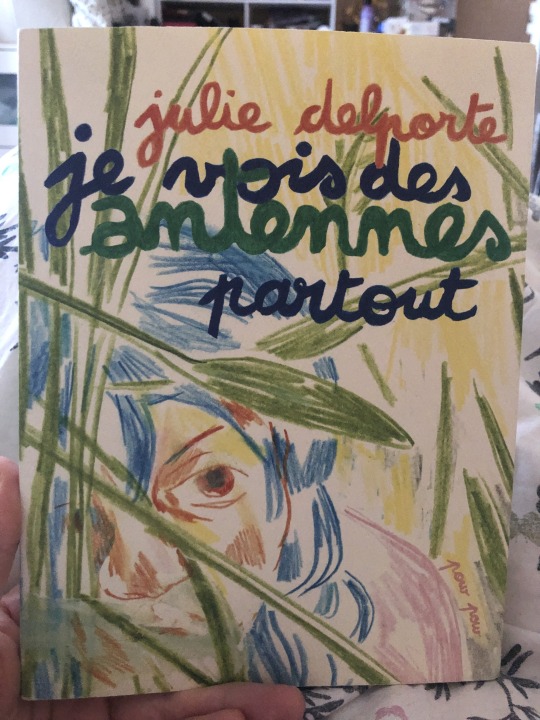
Je vois des antennes partout de Julie Delporte (éditions Pow Pow)
J'avais beaucoup de livres sur ma table de nuit avec la rentrée littéraire, et je m'étais gardé Je vois des antennes partout de Julie Delporte pour le moment où j'aurai fini ma pile de “lectures-boulot” (même si, bien sûr, la ligne entre lecture-boulot et lecture-plaisir est très très poreuse). Dimanche, j'ai donc lu ce récit autobiographique sous ma couette. Julie Delporte raconte un moment de sa vie où elle s'est mise à se sentir agressée physiquement par les ondes, et par l'illusion du confort moderne. Elle est atteinte de maux de têtes violents et elle devient sensible aux portables et aux antennes qui semblent se multiplier autour d'elle sans qu’elle ne puisse rien y faire. Comment pourrait-on se couper de ce qui nous est imposé ?
L'autrice accepte l'offre d'une de ses amies d'aller vivre quelques temps dans le chalet de son grand-père au nord du Québec, "loin des antennes de téléphone". Commence alors une méditation autour de la nature, des angoisses, de la nuit, des ruptures. "C'est trop tard pour faire reculer le monde" écrit Julie Delporte — et sous ma couette, en pleine pandémie, cette phrase m'a frappée en plein cœur.

J'ai déjà parlé plus que de raison de l'effet à la fois immédiat et très profond qu'a l'œuvre de cette autrice sur moi, et ce livre l'a encore une fois confirmée. Sa manière de dessiner la nature, de rendre compte de ses angoisses, de trouver les couleurs, les mots et les traits pour raconter des sentiments sur lesquels je n'aurais jamais réussi à mettre de mots m'émerveille vraiment. Ses livres pourraient me rendre triste mais ils me donnent ce sentiment précieux d'être moins seule.
Merci Olivier de l'avoir mis au pied du sapin <3
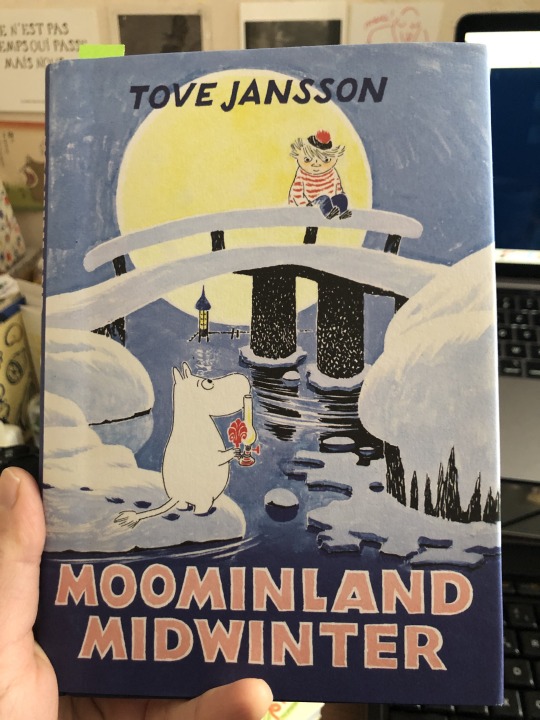
Chercher du sens avec Moominland Midwinter de Tove Jansson
En 2020 je devais partir en Finlande sur les traces des Moomin, c'était un voyage que j'avais planifié rapidement mais qui avait l'air super sur le papier. Après l'avoir annulé j'ai souvent regardé les photos du logement que nous avions loué avec ses petites chaises près du lac. Ça ne me rendait pas triste, je fermais les yeux et je m'y installais tranquillement.
Ce week-end je m’y suis finalement rendue via les mots de Tove Jansson. Le conte Moominland Mindwinter m'est apparu comme étant étrangement de saison : Moomintroll se réveille de son hibernation prématurément, alors que l’hiver vient tout juste de commencer. Évidemment, tout le monde dort toujours. Il se retrouve donc obligé de découvrir l'hiver, et tout au long de son aventure il découvre la résilience, la manière dont le familier peut changer selon la saison, le sens de la compagnie et des amitiés improbables. Il découvre aussi un peu d’où il vient. Bref, ce récit m'a fait beaucoup de bien parce qu’il raconte toutes les manières dont on peut s’habituer à des événements angoissants. Et parce qu’il parle d’aventure, et qu’on en manque un peu ces jours-ci.
He looked at the cupboard in the corner and thought of how nice it was to know that his own old bath-gown as hanging inside it. That something certain and cosy still remained in the middle of all the new and worrying things.
(à un moment, un événement triste intervient, et Tove Jansson nous encourage, dans une note de bas de page, à consulter une page de la fin du livre pour nous rassurer. Je me suis dit que c'est ce que j'aimerais bien faire en ce moment, aller voir à la fin du livre de cette année pour voir si cela peut me rassurer.)
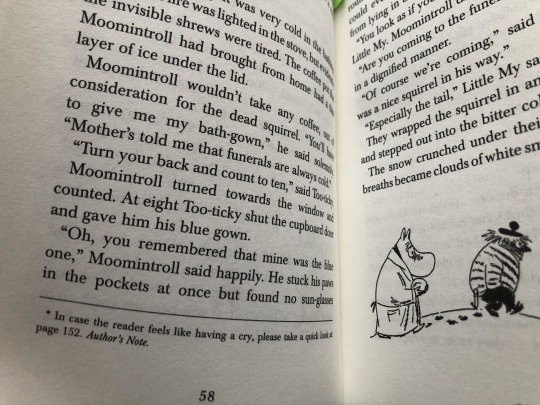
Les chansons que j’écoute en boucle
J'ai fait une playlist en janvier pour mettre dedans toutes les chansons que j'écoute, pour des raisons inconnues, en boucle en ce moment. Je la partage comme ça, si jamais votre mois de janvier n'a aucun sens et que vous voulez voir ce qui passe en random dans mon cerveau.
2 notes
·
View notes
Note
Ooh, what did you hear about the RSC production of 2 Henry VI?
I heard about it from both @themalhambird and @maplelantern who saw it and are much better people to answer this than me! What I've heard is that it's very good, Henry VI in particular is fantastic - he has some steel in him - but the way the women (i.e.. Margaret of Anjou and Eleanor Cobham) are handled is disappointing, that efforts to be unapologetic about their fierceness/ambition meant that they're pretty much played straight and lose what nuance could be added to them. Margaret’s apparently well-acted apart from the screaming. Eleanor's made into a comic role but her actor isn't naturally comic and feels miscast while the marriage couple dynamic is missing from her relationship with Humphrey. Also heard that the future Richard III is utterly fantastic, there’s a good York family dynamic and Warwick is amazing but that’s more 3H6.
2 notes
·
View notes